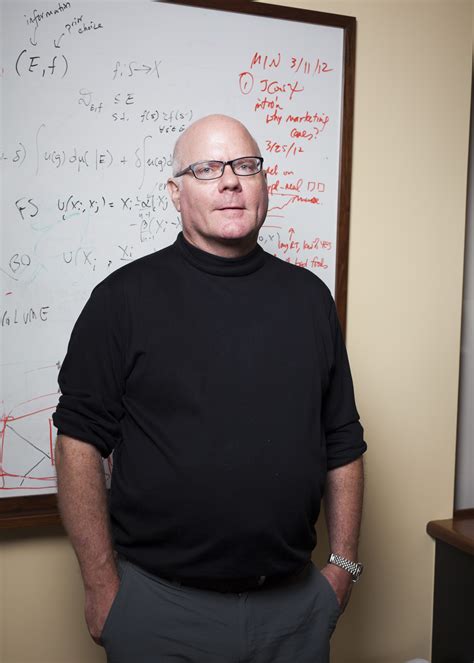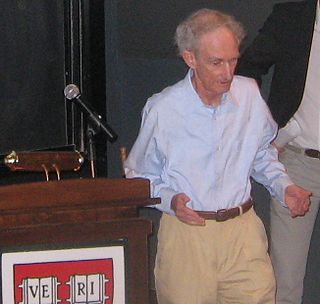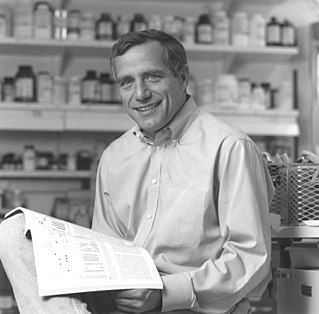A Quote by Colin Camerer
Charles Darwin and I and you broke off from the family tree from chimpanzees about five million years ago. They're still our closest genetic kin. We share 98.8 percent of the genes. We share more genes with them than zebras do with horses. And we're also their closest cousin. They have more genetic relation to us than to gorillas.
Related Quotes
Granted, we may try to help our own family members because they share our DNA. Or help someone else in expectation that they will help us later. But when you look at what we admire as the most generous manifestations of altruism, they are not based on kin selection or reciprocity. An extreme example might be Oskar Schindler risking his life to save more than a thousand Jews from the gas chambers. That's the opposite of saving his genes.
Yes, genes are important for understanding our behavior. Incredibly important - after all, they code for every protein pertinent to brain function, endocrinology, etc., etc. But the regulation of genes is often more interesting than the genes themselves, and it's the environment that regulates genes.
Natural species are the library from which genetic engineers can work. Genetic engineers don't make new genes, they rearrange existing ones. Speaking as World Wildlife Fund Executive Vice President, stating the need to conserve biodiversity, even plants and animals having no immediate use, as a unique repository of genes for possible future biogengineering applications.
Superficially it's a problem if homosexuality is genetic - if the difference between people's sexual preferences is genetic - because at least a pure homosexual would be unlikely to reproduce and therefore pass on the genes. So the first question you ask is, is it actually genetic, and the answer is probably to some extent yes.
Recently, results of the Human Genome Project have shattered one of Science's fundamental core beliefs, the concept of genetic determinism. We have been led to believe that our genes determine the character of our lives, yet new research surprisingly reveals that it is the character of our lives that controls our genes. Rather than being victims of our heredity, we are actually masters of our genome.
The choices you make each day in your diet and lifestyle have a direct influence on how your genetic predisposition is expressed - for better and for worse. You're only as old as your genes, but how your genes are expressed may be modified by exercise, diet and lifestyle choices much more than had previously been believed - and more quickly.
Epigenetics doesn't change the genetic code, it changes how that's read. Perfectly normal genes can result in cancer or death. Vice-versa, in the right environment, mutant genes won't be expressed. Genes are equivalent to blueprints; epigenetics is the contractor. They change the assembly, the structure.
What a dull universe it would be if everything in it conformed to our expectations, if it held nothing to surprise or baffle us or confound our common sense. A century ago no one foresaw the existence of black holes, an expanding universe, oceans on Jupiter's moons, or DNA. What could be more enriching than to know that we share a common origin with all living things, that we are kin to chimpanzees, redwoods and mollusks? And isn't it a source of wonder to realize that the iron in our blood and the calcium in our bones were created in the bellies of supernovas?




































